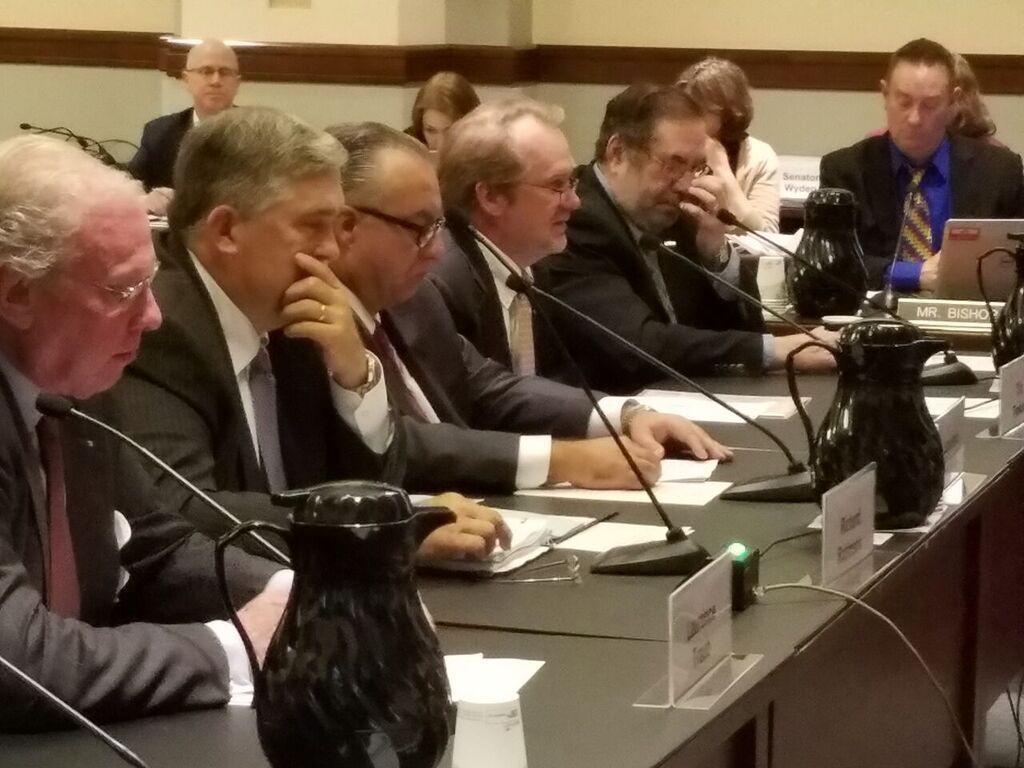Northwest Indiana's steel industry "under attack"

U.S. steelmakers gave the U.S. Department of Commerce and the Office of the U.S. Trade Representative an earful on the steel import crisis in America for a second day Wednesday, saying that 12,500 layoffs nationwide showed a need for immediate action.
"This import surge is the result of foreign government interventionist policies that have fueled massive, and growing, global overcapacity in steel, estimated by the OECD to be about 700 million metric tons today," American Iron and Steel Institute President and CEO Thomas Gibson said at the Washington hearing.
More than half of that overcapacity – 425 million metric tons – is located in China, where government policies have dramatically increased the size of their industry, Gibson said. Today, Chinese production represents half of all global steel production.
“The Chinese model of government intervention is now being emulated in other countries as well, perpetuating the growing overcapacity problem,” he said.
Gibson called for more enforcement of trade laws, denying China market economy status that would weaken tariffs, and binding commitments from other steelmaking countries to shed excess capacity. He attributed much of the problem to China shipping steel to countries like Turkey and South Korea, which process it and ship it to the United States
Steelmakers say foreign rivals have no competitive advantage other than that they can dump heavily subsidized steel without worrying about profiting or returning money to shareholders.
"This hearing facilitated an important discussion on the problem of global steelmaking overcapacity," Steel Manufacturers Association President Philip K. Bell said at the hearing. "It is now time for action, and for the United States to lead constructive international efforts both to limit new capacity and to remove unneeded capacity."
Both of Indiana's U.S. Senators have called for the enforcement of bipartisan customs legislation that passed earlier this year and is expected to help the domestic steel industry.
Sen. Joe Donnelly said the current import crisis is worse than the one in the early 2000s when 30 American steelmakers went bankrupt.
"For several years our domestic industry has been under constant attack," Donnelly said. "Our steel industry is in the midst of a crisis more severe than the one experienced nearly two decades ago."
He called on the administration to put a stop to job losses by keeping bad actors abroad from exploiting the system.
"As a Senator from Indiana, a state that accounts for one quarter of all domestic steel capacity, I visit with steelworkers and their families to listen to their concerns about the impact of illegally-traded steel flooding our market," Donnelly said. "These workers have never asked me or anyone else for a handout — they simply ask that all parties compete on a level playing field because these Hoosier steelworkers know how valued their steel products are here and abroad."
Sen. Dan Coats and other members of the Senate Finance Committee also sent a letter to U.S. Trade Representative Michael Froman, calling for action on the import crisis.
"Global demand for steel, including U.S. demand and Chinese demand, has decreased," the senators wrote. "As a result, significant increases in exports of Chinese steel have entered global markets, including the United States, impacting U.S. steel producers, steel consumers, steel industry suppliers, steel industry workers, and communities across the United States."